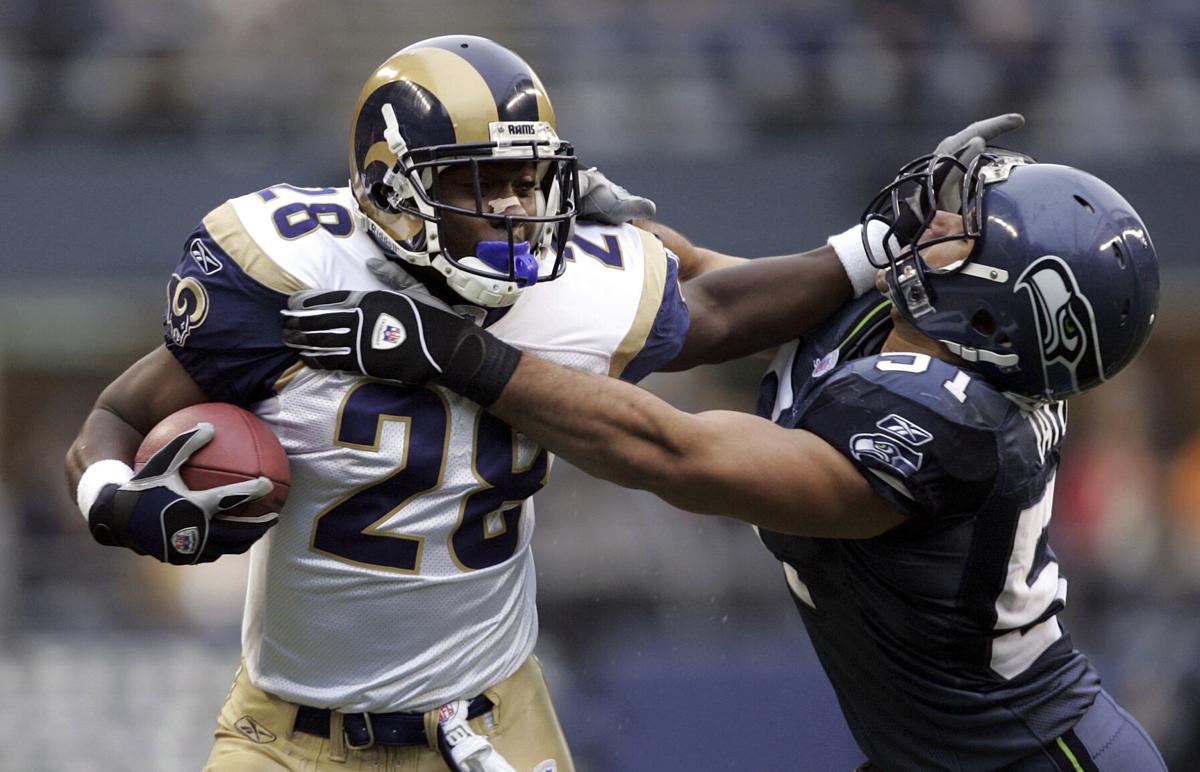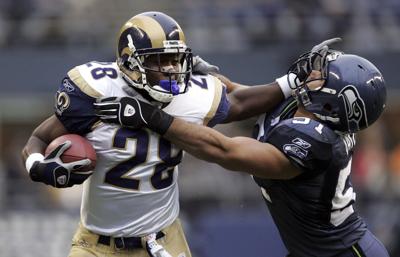You’d assume the easy way for a former professional football star to give back would be to maybe run a camp. Perhaps he might volunteer a few days here and there to visit a youth, high school or college program and give some pointers. Maybe even just write a check, donate some money and keep it moving.
So what’s with the recent trend of high-profile and highly successful former NFL players diving into the college ranks as if there’s a gravitational pull acting upon them?
It just may be as simple as returning a favor someone did for them years ago, and taking on the responsibility of having an impact on the lives of young men. If so, that should be a welcomed and admirable choice, especially in an era where the rights of college athletes have finally garnered more consideration and those players have gained some measure of influence.
“I think there’s a getting into it, and then there’s a calling,” told me in February at the Missouri Athletic Club in ӣ����Ƶ.
People are also reading…
Faulk was in town as part of a 25th anniversary celebration of the Rams Super Bowl championship.
That just so happened to come not long after Faulk, a former NFL superstar who helped transform the Rams into champions and amassed numerous accolades on his way to the Hall of Fame, joined Deion Sanders’ coaching staff at the University of Colorado as a running backs coach.
“I coach people on life and how to be successful in life,” Faulk said. “A lot of the things that make you successful in sports are the same things that will help you in business. You just have to know how to frame it, and you have to know how to deal with the ebbs and flows and ups and downs. So this was something that has been chipping away at me my whole life, and now I don’t have a reason to say no.”
Faulk became one of two Pro Football Hall of Fame members in supporting roles on the Colorado staff. Warren Sapp, a former NFL Defensive Player of the Year, serves as defensive pass rush coordinator for Colorado.
Sanders, a former multi-sport star and Pro Football Hall of Famer who also goes by the “Coach Prime” moniker, grabbed a lot of attention in recent years for his coaching success. He started at Jackson State University, a historically black college or university (HBCU), before he took over a major conference program at Colorado.
Sanders was hardly the lone big-name football legend to take his experience, notoriety and voice to the college ranks.
This past offseason, four-time Pro Bowl quarterback , another HBCU, and joined a high-profile group of former star players that includes former Heisman winner and NFL Rookie of the Year and four-time Pro Bowl running back Eddie George and Hall of Fame safety Ed Reed, as stars who’ve dove into the college game (Reed held a support role at the University of Miami before he was named head coach at Bethune-Cookman, ).
If Faulk or any of the others simply wanted to keep a piece of the limelight on them, they had several other avenues to do that. Faulk worked as an analyst for NFL Network after he retired.
A seven-time Pro Bowler and three-time NFL Offensive Player of the Year. Faulk also created his own charitable organization, The Marshall Faulk Foundation. Admittedly, Faulk tried hard to avoid the coaching call.
“The reality is coaching was always something I never wanted to do,” Faulk said. “Coach Prime and I, we’re good friends. We talked about it. He did a really good job of making it appealing. I’m at a point in my life that I have time to give it my full attention, and it’s a challenge for me. So I’m looking forward to it.”
As a running back, Faulk played a style of game that was somewhat ahead of his time. Explosive as a receiver and a rusher, he wrapped up his career as the lone player in league history to compile at least 12,000 rushing, 6,000 receiving yards and 130 touchdowns.
He served as the lead showman of ӣ����Ƶ’ “The Greatest Show on Turf” teams remembered for record-setting Rams offenses.
Former Rams head coach Dick Vermeil, now 88, offered a resounding endorsement for Faulk as a coach in February.
There’s long been a sentiment that outstandingly-talented players often have trouble as coaches because they don’t relate to players with a lesser talent level than they had, but Vermeil rejected that notion in regard to Faulk.
“I’d hire him tomorrow,” Vermeil said. “He was the brightest running back, game day, that I’ve ever been around. I could find out what was going on in the game by talking to him. I brought one of my former players and made a coach out of him that year, (running backs coach) Wilbert Montgomery. He had never coached.
“Marshall helped make him. (Montgomery) coached in the league 19 years. Marshall is very bright and really understands the game, the concepts, the reasons. And he understands it under pressure. If he really takes it serious, he’ll be an exceptional coach.”
OK. Based on the available information, there seems to be a skill and a will for Faulk to be a good coach and mentor.
But if that ability has been in him and he avoided this path for years, why now?
What could Sanders’ sales pitch have been to make Faulk embrace the daily grind of recruiting, coaching, breaking down film, coaching a group of young men on and off the field?
“Somebody coached me,” Faulk said. “What was given to me, in life you’ve got to pay things forward. When my kids were younger, I had an excuse. Now, I don’t.
“I get to see if it’s something — not am I good at, but can I excel at it and can I help some young men get better at being the best version of themselves on the field and off the field.”
In today’s 10 a.m. “Ten Hochman” video — brought to you by �����Ի��� — Ben Hochman celebrates Kurt Warner’s birthday by suggesting that ӣ����Ƶ erects a statue in honor of the Rams’ legend. Also, a happy birthday shoutout to Meryl Streep! And as always, Hochman picks a random ӣ����Ƶ Cards card from the hat!















